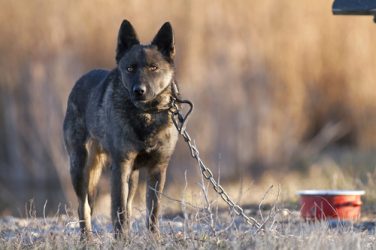A balanced diet for your dog is critical for his cell maintenance and growth as well as overall health. A dog must be able to get all the required nutrients from high-quality commercial pet food which are made primarily with nutrition in mind. Dogs from various ages require a separate nutritional need. Here are useful guidelines as to the nutrients your dog needs for optimum healthy living.
Water
Just like humans, water is an essential element of life. Water makes up between sixty and seventy percent of an adult dog’s weight. While food may assist with meeting your pet’s water requirements (Dry food has up to ten percent moisture and canned food up to seventy-eight percent), it is always still necessary to provide your pet with fresh water. Water deficiency in a dog can have severe repercussions that can lead to serious illness (10% decrease in body water) or death (15% loss of body water).
Proteins
Proteins assist with building tissues, cells, enzymes, organs, antibodies, hormones, and are vital for growth, reproduction, maintenance, and repair. Proteins are derived from animal-based meats like lamb, turkey, chicken, fish, eggs, and turkey). You also get incomplete proteins which are obtained from vegetables, soy, cereals and vegetables.
Fats
Fats are your most concentrated type of food energy, offering your dog with more than twice the energy than carbohydrates or proteins. Fats are predominant in the structure of cells and are necessitated for producing some hormones and are needed for absorbing and using specific vitamins. It also protects internal organs. A deficiency of linoleic acid (essential fatty acids) can lead to reduced growth or augmented skin issues. Check this post specifically for pitbulls to gain more insight on the best foods for them.
Carbohydrates
Carbohydrates are providing energy, play a significant role in intestinal health, and are essential for reproduction. There is no minimum requirement for carbohydrate intake, but there is minimum glucose needed, which is necessary to give energy to vital organs like the brain. Fibers are forms of carbohydrates that change the bacterial population in the small intestine, which can assist with managing choric diarrhea in dogs. The fiber source must be reasonably fermentable to boost healthy gut and avoid undesirable side-effects like excess mucus and flatulence. Examples include beet pulp, brans, and wheat middlings.
Vitamins
Small volumes of vitamins are necessary for dogs for normal metabolic functioning. Most vitamins can’t be synthesized in the body and are therefore vital to get in a diet. When you’re feeding your dog a balanced and complete diet, you don’t have to give him a vitamin supplement unless his veterinarian diagnosed a vitamin deficiency. An excess in vitamin A may lead to brittle bones, joint, and bone pain, and dry skin. Too much vitamin D may cause dense bones, kidney failure and soft tissue calcification.
Minerals
Minerals can’t be synthesized by animals and must be obtained from their diet. Minerals are overall the most essential since it is needed for structural constituents of teeth and bones, maintaining fluid balance, and play a role in various metabolic reactions.







